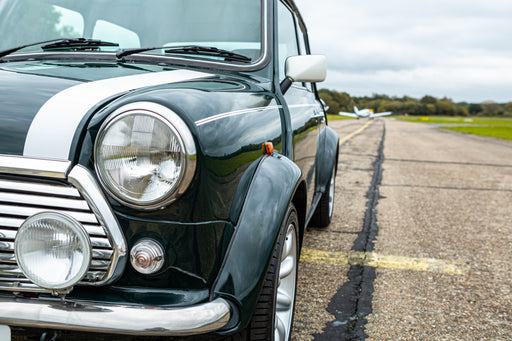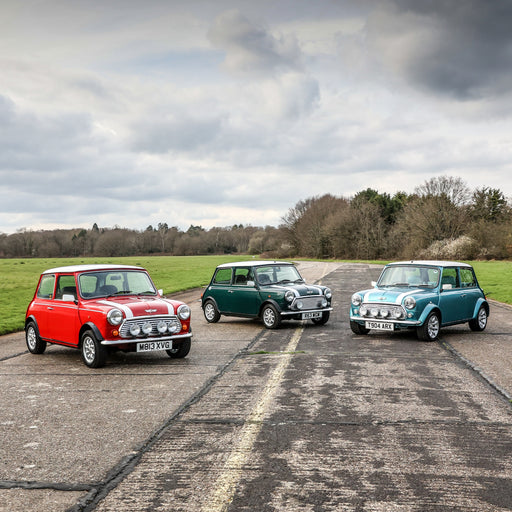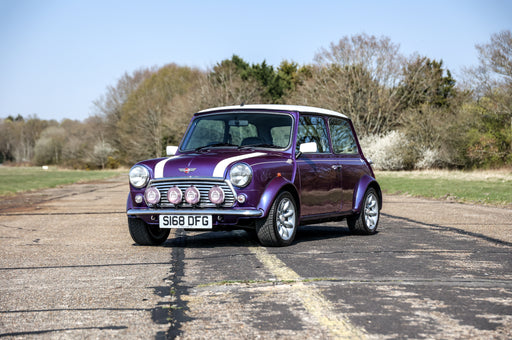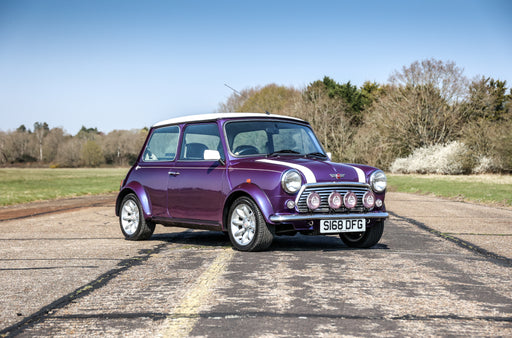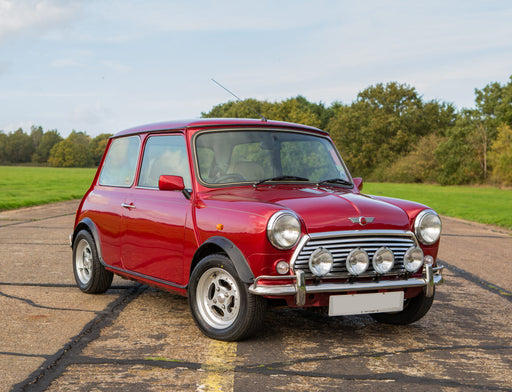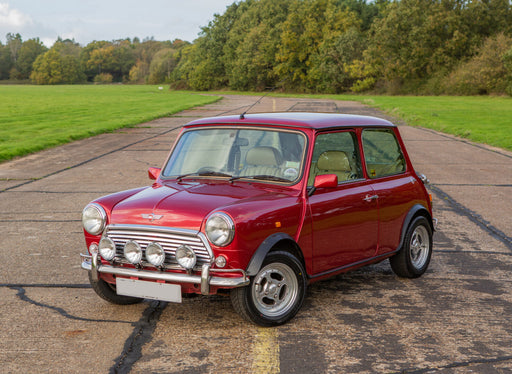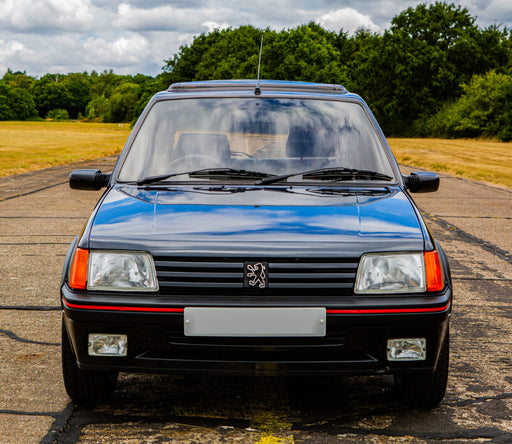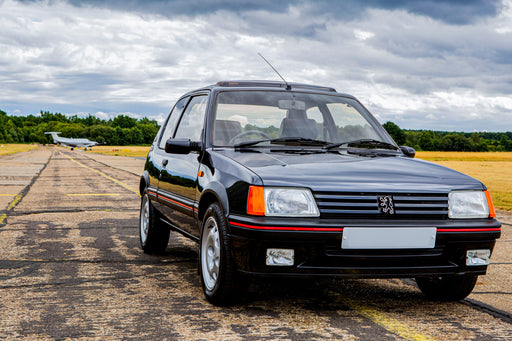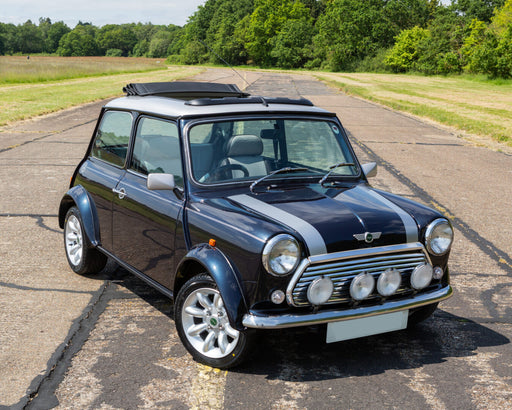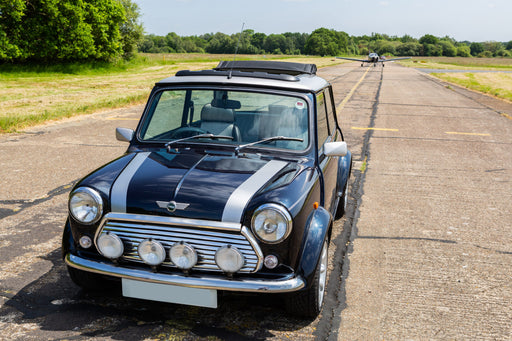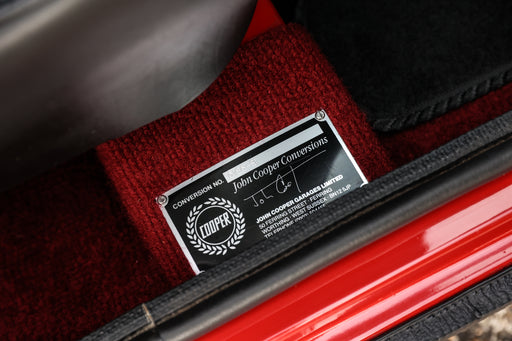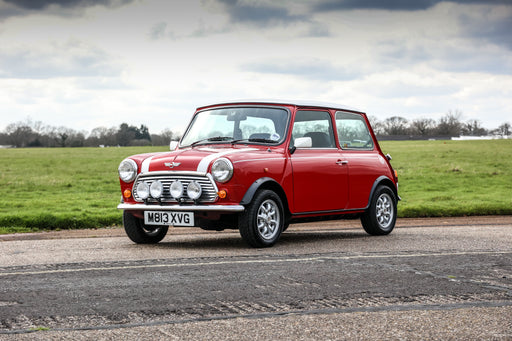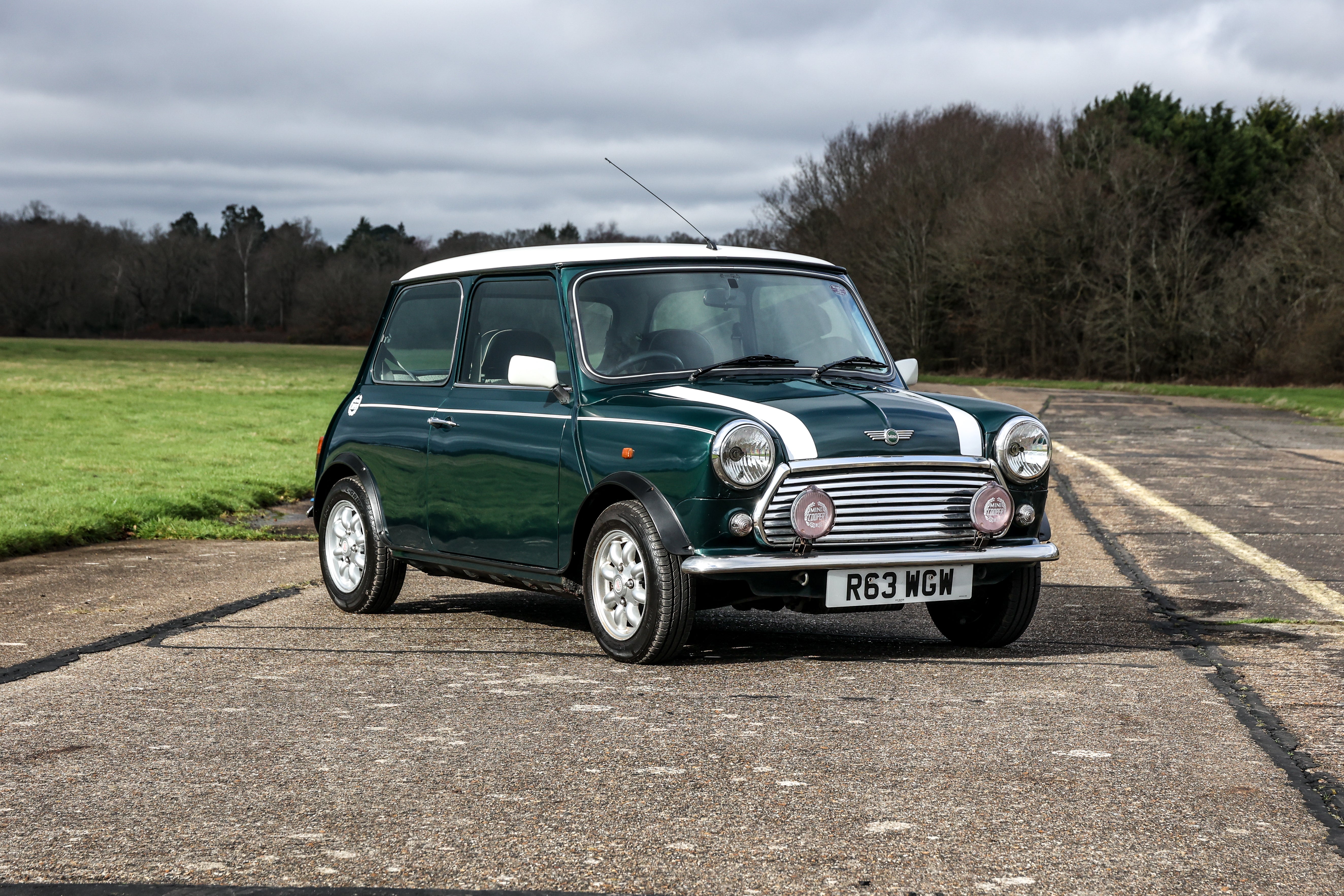
 >
>

What is a Classic Mini Really Worth in the UK?
Updated: 21/07/24
The Classic Mini has varying value depending on the time it was produced and the style of Mini. The popular Mini Cooper 1275 1960-1970’s models range from £16,000 to £60,000 in good condition. Whereas later Mk7 models with multi-point fuel injection built between 1996-2000, typically start from £10,000 to £20,000 in good condition.
One of the most desirable Mini models is the Cooper Sport 500 which ranges from £15,000-25,000 in good condition. However, the condition and mileage is usually the biggest factor in determining the cost of a classic mini, not the model.
Which classic mini has the highest value?
There are 5 decades of different types of classic mini’s with over 5.3 million being produced within this time, with 8 different styles.
- Classic Mini Hatch
- Wolseley Hornet
- Riley Elf
- Classic Mini Estate
- Classic Mini Van
- Classic Mini Pick-Up
- Classic Mini Moke
- Classic Mini Convertible
Both the decade of production and style of Mini affect the classic Mini’s value. For example, the 1960’s classic mini is more rare therefore they generally have a higher price point (average price of £35,000 - £45,000). Specifically those built between 1959 and 1967 with the 848cc engine have the highest Classic Mini value. The mini’s built after 1969 are less collectible due to not being as rare as well as some changes in the exterior with concealed door hinges and different windows. This also means that the Mini’s from 1959-1967 are more expensive to insure due to it being harder to find certain parts, if and when replacements are needed.
Are classic minis a good investment? Do they hold their value?
Classic Mini’s have not been manufactured since 2000 and is unlikely they ever will, meaning their value will constantly be ever increasing. Classic Mini’s are known for their reliability. Those that remain in good condition or have been extensively restored have the highest value. Due to the increasing rarity of the classic mini’s they not only hold their value but increase over time, especially with the growing popularity from collectors. However, like all cars classic mini’s they do require maintenance and it can be expensive to replace certain parts if needed, due to the rarity of some parts. Therefore it is best to consider this before investing in a Mini, but also the better quality the mini, the higher the value. See our article Why Minis Are A Good Investment? for more information.
What affects a classic Mini’s value?
There are few aspects of a classic mini which can affect its value other than the year of production or type of mini. Classic Mini’s are known for rust and are renowned for corrosion therefore it is always important to keep an eye out for any rust. It can be dealt with however this comes with a cost, therefore the more rust the lower the value.
The main areas to look for rust are:
- A Pillars
- Scuttle Panels
- Sills and Front Subframe Mounting Points
- The Floorplan (always check under the carpets and rear seat)
- Front and rear shock absorber mounts
The engine of the classic mini can also affect the value, such as the lower the mileage the higher the value. The interior of the car, if remained in classic form or restored and is in good condition can increase the value of the Classic Mini. Essentially, the better maintained the mini the higher the value, and these are all aspects to look at when determining a classic Mini’s worth. However, having a classic Mini is not all about maintenance but the experience of owning a car from the past and how it makes you feel when you drive.
Take a look at our Classic Mini Buyers Guide & Review for a detailed inspection of what to look for when buying a Mini.
A Classic Mini can be a good investment. If you are interested in learning about the value of your Mini, or buying your own, then contact Phil Mires at 01932 640113 or email Phil at: phil@pm-antiques.co.uk
Latest Classic Cars For Sale
classic minis wanted
We are actively seeking classic Minis in excellent condition, ideally with low mileage and a detailed history, especially models such as the Cooper...
View details1999 classic mini cooper s touring by john cooper garages
As featured in MiniWorld Magazine. In 1997, John Cooper Garages launched two new exciting iterations of the iconic Mini Cooper S: the Cooper S Tour...
View details1996 classic mini 'cooper s touring' by miniworld & john cooper garages
A unique opportunity to purchase a MiniWorld Magazine feature car specially converted by John Cooper Garages. This Mini was supplied to Link House ...
View details1989 peugeot 205 gti 1.9
First registered on 29th September 1989. 84,000 miles from new. Driven a mere 5,000 miles in the past 15 years. A collector-quality example. Meticu...
View details2001 classic mini cooper sport 500
The Cooper Sport 500 was the final edition of the classic Mini, released in a strictly limited production run of 500 units. They were only availabl...
View details1994 classic mini john cooper si+, only 7695 miles from new!
As featured in MiniWorld Magazine. This Mini Cooper was originally supplied by Hannants of North Walsham, Norfolk on 17th December 1994 and is pr...
View details
